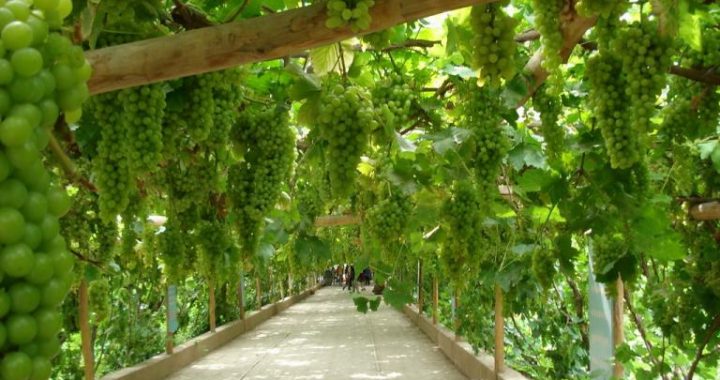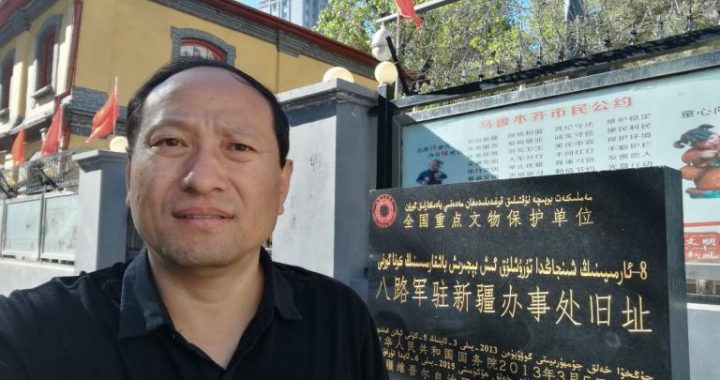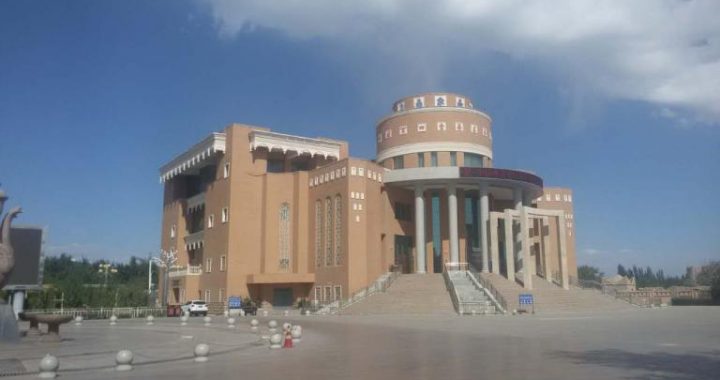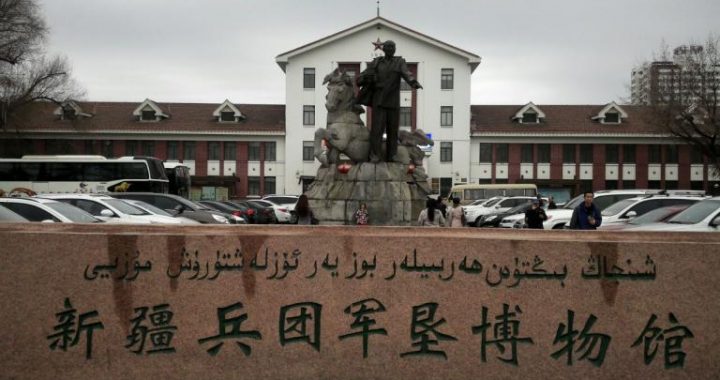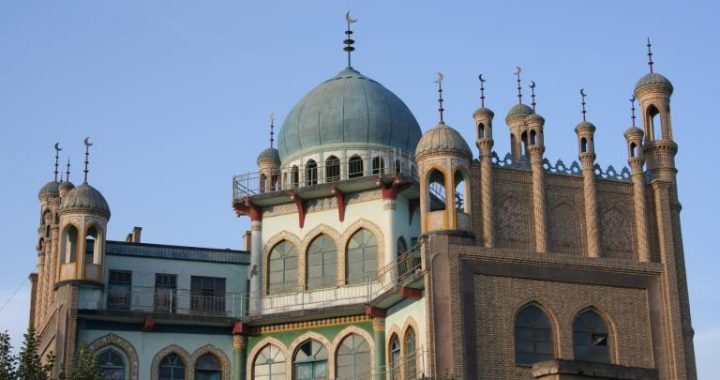Virtues for Respecting the old and Cherishing the Young
7 min readRespecting the old and cherishing the young are the traditional virtues of the minorities in Xinjiang. People in various minorities in Xinjiang are so respectful of the old that they can’t traverse before the old and should bow to extend greetings to the old when they encounter old people. In any occasion, they ask the old to sit above the salt and eat and drink first when walking the old will walk in front of others, and when coming out of or getting into the room, they also let the old walk first. The young should stand up and relinquish the seat to the old who they encounter. the young can’t turn their backs to the old and also can ‘t smoke or drink before the old.
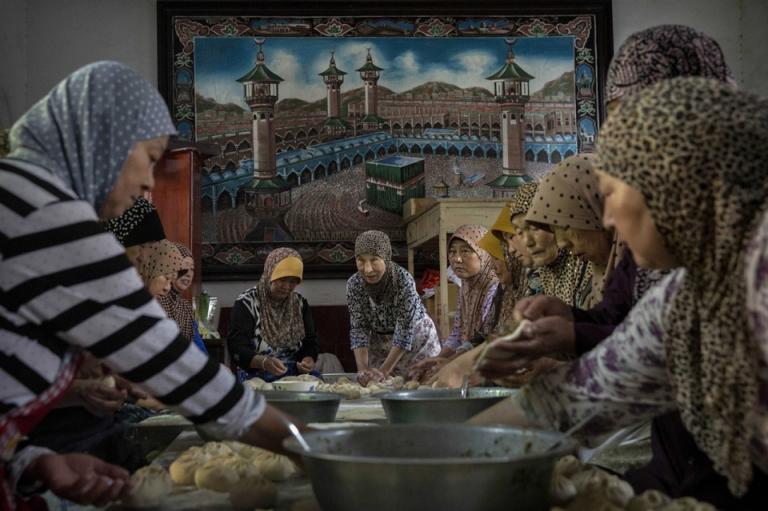
As for respecting the old, there is a tale in Kazak: long time ago, a king thought the old were not useful and issued an order that all the old people aged 60-year-old or above must be thrown to the wild and the family who revolts will be executed. A young man couldn’t bear to throw his aged father to the wild, so he hid his father in a big wooden case. One day, the young man was drafted for expedition he started off with his father who hid in the case on the back of a cow. When the team of expedition came to desert, they had drunk off all the water and the king was so worried he ordered that he wil reward the person generously who can find water. The young man told this matter to his father. His father asked him to put down the case, loose the cow and follow the cow and told him that the water could be found under the ground where the cows nose smelled. The young man found the water in this way. A few days later, the team came to a large lake, and the king saw a bundle of bright light in the water doubting that there may be jewel in the water, so he ordered that the person who can find jewel will be his minister The young man told this matter to his father again, and his father told him how to find the jewel, but requesting him to put forward two conditions to the king before helping the king to find jewel: first, forgive the young man who revolted the king’s order; second, cancel the order to throw the old people to the wild. The king agreed the young man’s conditions and the young man alsofound out the jewel and sent it to the king. The king canceled the order to throw the old and said sorry to the old. Up to now, the well-known saying of 60-year-old people have more wisdom “still spreads in Kazak.
The Uygur are filial to their parents and follow parents’ advices respectfully, without bunting to parents in any occasion; they usually leave the delicious food to parents and fill the elder’s bowl first when eating; after getting married they often go back to visit parents. In the festival, children should visit parents first and the younger generation should visit the old generation first. In everyharvest, the young people should send gifts to the old people first, for example when the fruits mature this year, the first fruit should be sent to the old to taste and the meal made by the fresh flour should be eaten by the old first Some families who don ‘t have their own eldership, even do, will treat the oldest people as their own eldership. the young people can’t call the old people’s names directly and can’t smoke or drink before the old and also cant talk and laugh indecently before the old people. When guests, especially the old people, come to home the host will entertain them with much enthusiasm D the Uygur believe that the old people and seniors have great wisdom and ole can ‘t call their names directly, so they usually add some appropriate titles behind the old people’s names For example, people will add”bowaor chon dada”(equal to grandfather),”ata”(equal to uncle), “aka”(equal to uncleor big brother) and so on to men ‘s names and they will add”moma”or “chonapa”(equal to grandmother),”apa”(equal to aunt),”acha”(equal to big sister and so on to the women ‘s names There is a proverb in Kazak: If a young person comes, the host will let him or her work, and if an old person comes the host will entertain him or her In the families of Kazak, the old people mainly need not undertake any homework and they only do some work they can do. People will consult withthe old people about everything happening in the family or in the pasture village, and the old will take charge of and arrange these things. If there are some disputes, the old people will come out to mediate. Generally, the decisions made by the old people can’t be violated the first bacon made every year will be sent to the old people to taste. the heads of cows and sheep killed n the winter will be sent to the old people in the Nowruz Festival in the next year. All the aged guests should be entertained with much enthusiasm. When an old person visits as a guest or comes back from outside, the young people will help the old person to unload the saddle initiatively and feed the horse with water and grass.

The mongolian extremely advocate respecting the old and cherishing the young. There are many proverbs in Mongolian about it, such as “Clothes has a collar and people have the eldership and brothers”,”We should fully respect eldership, and also should respect brothers to a certain extent”. If an aged guest comes to home, we should go up and take over his or her horse; when the aged guest leaves, we should pull the horse and help the guest to mount. If a young person encounters eldership, he or she should dismount or walk toward the eldership slowly to give warm greetings initiatively. If a young person does not dismount or stop to give greetings to the eldership, dashing madly instead, he or she will be regarded as a disrespectful person.
In the past, it is an important family rule for the Xibe people to respect the old. there are rules in some families for example people who squint at the old will be slapped”,”people who abuse the old will be punished in Mokun conference”and so on. On the festival days, weddings and funerals, the old sit above the salt. When encountering the old in the street, the people who are riding or driving should get down to give way or to walk forward to salute by keeling the left leg. In the evening, the young cannot sleep before the old going to bed. When entering the room, the young should give way to the oldThe young people should listen carefully when the old teach them the youngpeople can’t interrupt randomly when the old are talking. The young people an’t drink with the old people at the same table. the clothes, shoes and caps of the old people can ‘t be flipped and particularly the caps can’t be fiddled with randomly. People who don ‘t attend the old and leave hard work to the old will be scoffed and denounced the young generation can ‘t call the names of the old generation, so in some Xibe families, the grandsons don ‘t know their grandfathers names till they have died In the Tajik society, although the men dominate their families, in daily lives, the Tajik women are fully respected. If a dozen of people visit friends, and pay a New Year call or participate in weddings and funerals, the host the oldest woman as the noblest guest. When entering the room, this woman lI enter first, and then others enter in the order of ladies and old people first, men and young people at last. In the Tajik family clan, the left heatable brick bed is superior to the right heatable brick bed. When providing the meat for the guests, the host will give the head and tail of sheep which are regarded as the most precious food to the oldest woman of guests. When meeting usually, boys and girls will kiss the center of palm of female eldership Apart from respecting the old, the custom of cherishing the young also is one of the fine fashions in minorities in Xinjiang In ethnic groups such as Uygur and Kazak, the fashion of cherishing the young prevails. the old always pray for their children and wish children to grow healthily; they love theirchildren much and don ‘t beat or abuse children randomly. If one person goesto other people’s home he or she will send greetings to the old people first and then he or she often plays with children for a while; he or she should bring some gifts to the children. the delicious foods are often left to the children Parents will bring some food, even some candies, for their children when they come back from outside. Not only that, they also pay more attention to the moral education for their children They teach children to respect old people and eldership, and express greetings and salute to the old people and eldership they encounter. When some guests come to visit, the boy should help the guests to pull horses and donkeys initiatively. When the guests wash hand before and after the meal, children are often asked to carry the kettle to pour water for the guests by their parents. In the evening, the girls will make the bed for the guests who will stay at night. Now, in many areas, this kind of traditional customs are still maintained.

